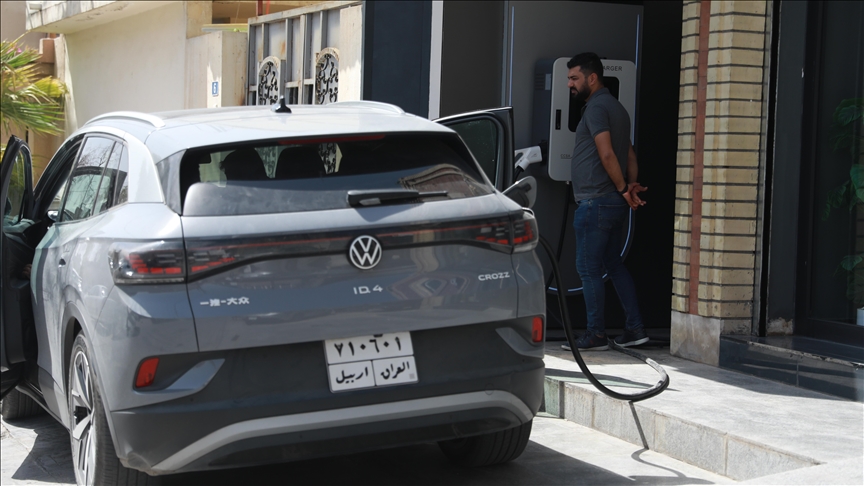Electric cars making inroads in Iraq's northern Kurdish region
Establishment of solar-powered charging station in Erbil makes life easier for owners of electric vehicles

ERBIL, Iraq
With increasing interest in electric vehicles in Iraq's northern Kurdish region, the establishment of a solar-powered charging station has provided much-needed relief to vehicle owners.
Dozens of electric vehicles are already in use in the region. The biggest problem facing the owners of these environmentally friendly vehicles is the lack of charging stations.
For this reason, vehicle owners have to charge their vehicles at home for as long as 10 hours.
The establishment of a solar-powered charging station in Erbil, the capital of Iraq's Kurdish Regional Government (KRG), makes life easier for electric vehicle owners.
Electric vehicles can travel for 500 to 550 kilometers (over 340 miles) when fully charged.
Rebend Mohammed, the owner of the company that established an electric vehicle station in the city, told Anadolu that they are working on electricity and renewable energy, adding that they are the first company to install a system that uses solar energy and fast-charge electric vehicles.
“With this system, an electric car is charged in two hours. The other system charges a car in 10 hours, and it is generally used at home. These vehicles are environmentally friendly. We have negotiated with many companies to increase the number of these stations,” he said.
Electric vehicle owner Jamal Mohammed noted that he has been using electric vehicles for about a year.
“We are pleased with the establishment of this fast-charging station. Thus, there is no need to wait for a long time. It is more advantageous than other vehicles when it comes to risks of technical failure," he said.
Mohammed Rubeyi, the owner of a car showroom that sells electric vehicles, noted that there are many types of electric vehicles and that there is a high demand for electric cars due to the issue of gasoline and other reasons.
Stating that the prices of electric vehicles are slightly higher than other fuel-type vehicles, Rubeyi said: “The prices of our vehicles, especially imported from Germany, are between $34,000 and $35,000. This year, we brought 56 vehicles here. Only 12 of them remain to be sold. So far, no one has reported any problems. I think the demand will increase even more in the future.”
Anadolu Agency website contains only a portion of the news stories offered to subscribers in the AA News Broadcasting System (HAS), and in summarized form. Please contact us for subscription options.


